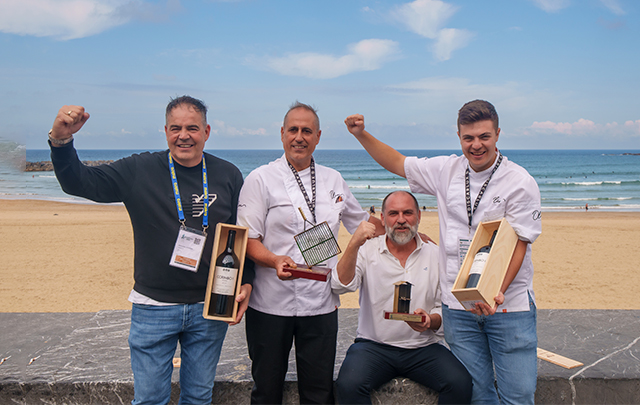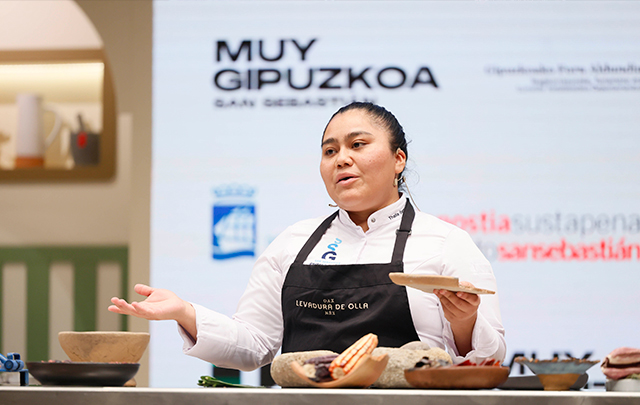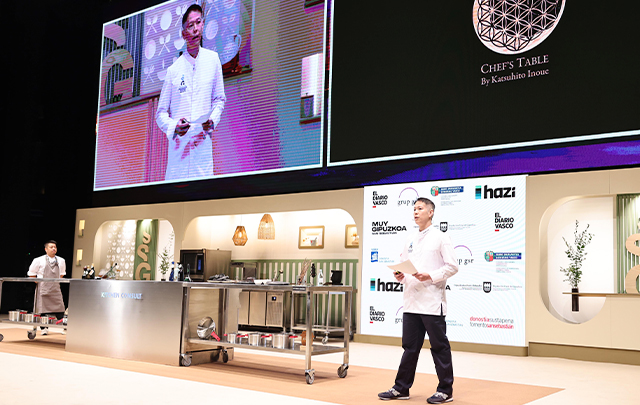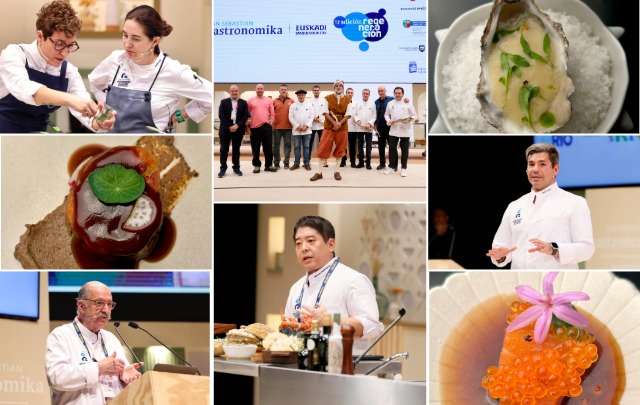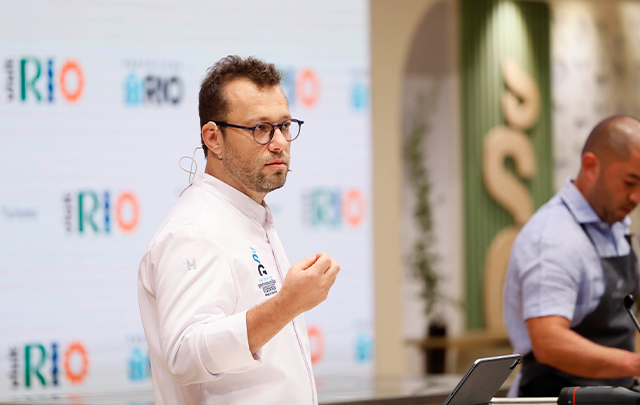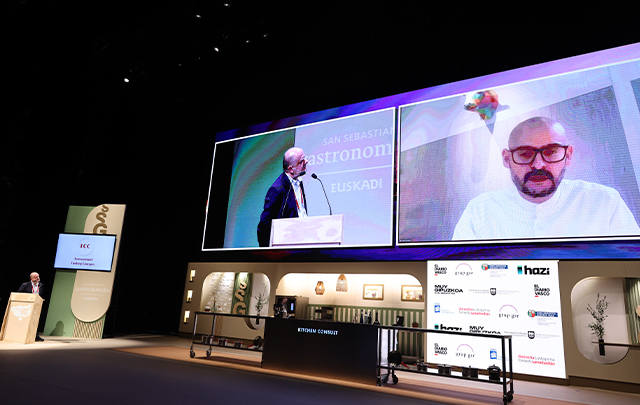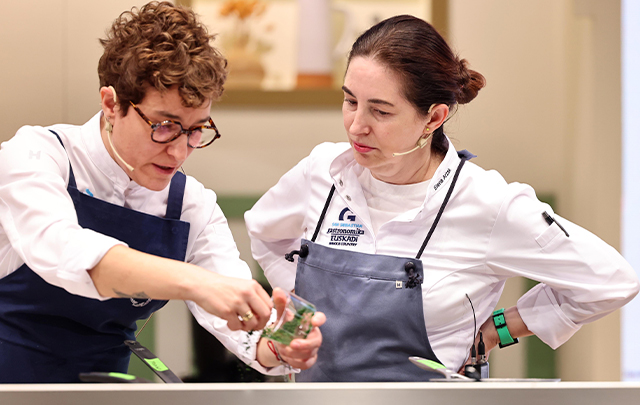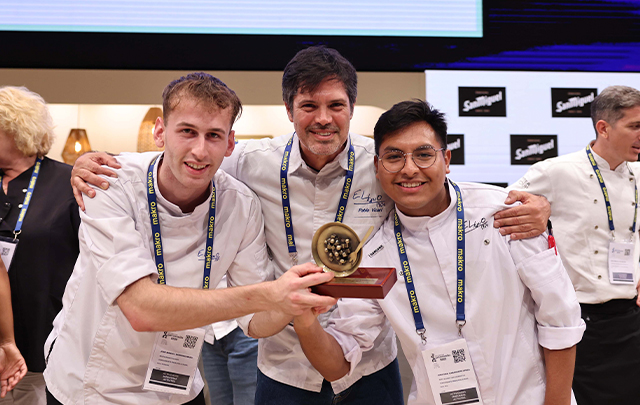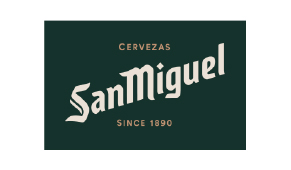News
Cuisine that respects time and rhythm
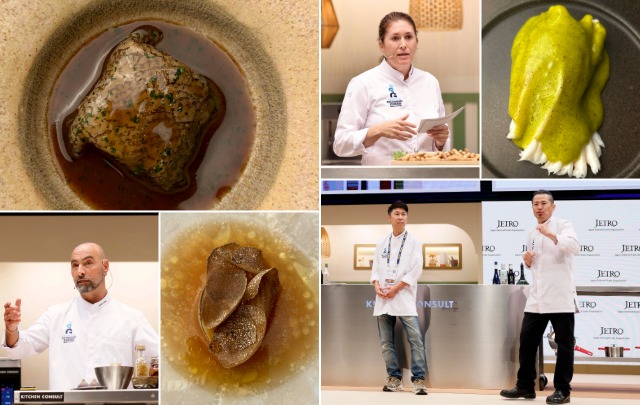
Matsuhisa, Maca de Castro, Jeferson García and Benito Gómez demonstrated how patience, ethics and respect for natural cycles can be translated into dishes that tell stories and connect with the land. The first afternoon at San Sebastian Gastronomika – Euskadi Basque Country was a journey for the senses and the mind. From kombu from Japan that matures over years, to Mallorcan produce that respects the cycles of the land, to the deep flavours of Colombia and the sustainable practices of Ronda, each chef championed patience, memory and ethics in the kitchen. They reminded us that every ingredient has its time, and every dish has its story.
In their presentation, Hideki Matsuhisa (Koy Shunka*, Barcelona), Yoshikazu Yanome* (Valencia) and Takashi Okui (Tsuruga, Japan) shared the stories behind the umami of kombu, the seaweed that gives Japanese dashi its soul. Okui, whose family has been preserving kombu in northern Japan for over 150 years, explained that 'the more it matures, the more flavour it has', drawing a parallel with wine as both processes require patience and time to guarantee quality. Kombu can take up to two years to mature and reveals two types of umami: one vegetable and marine and the other deeper and rounder. This reminds us that, in Japanese culture, time is also an essential ingredient in flavour.
Next up was Maca de Castro, the chef at the eponymous Maca de Castro restaurant in Alcudia, Mallorca. Her talk revolved around the concept of infinite seasonality, which is as simple as it is profound. The Mallorcan chef reflected on how each product has its own time and place of origin, and how the constant search for novelty in gastronomy runs the risk of forcing natural cycles. “We are moving forward relentlessly, and that is unnatural,” she warned, calling for a cuisine that respects the rhythms of the Earth and restores meaning to the calendar. She reminded us that every season, every landscape and every fruit has an emblem that deserves to be appreciated, not exploited.
On stage, De Castro transformed this idea into flavour. He presented Mallorcan peanuts with four seeds, a variety that was almost forgotten and which reminds us that the island used to be one of the main growing areas for this fruit before the potato replaced it. Using these peanuts, he prepared a matanzas potato dish and a salt-baked ray dish, the latter featuring the fish's gelatinous texture, rich in collagen, melting into a sea fennel hollandaise sauce. Like his speech, this dish builds bridges between the sea and the land, the past and the present, turning Mallorca into a living portrait of naturalness and respect for time.
Memory, territory and flavour
Jeferson García, chef at Afluente in Bogotá, paid homage to Colombia in his presentation, taking us on a sensory journey through his homeland and the green Latin American mountains. He was guided by his own poetry and exquisite attention to aesthetics. García presented three dishes 'full of history and connection', in which vegetables take precedence and flavours are discovered with patience. These dishes reflect both the memory of his grandparents, who were his role models, and the encounters with kind people who have shaped his career. His ingredients are fused with an almost narrative precision, creating flavour maps that cannot be taken in all at once, but which develop slowly on the plate. His cuisine invites you to explore each element and recognise the taste of each ingredient, turning every bite into an act of discovery, memory and territory.
In “Km. 1000”, Benito Gómez, chef at Bardal** (Ronda), explored how sustainability can become a culinary philosophy. During his presentation, he advocated 'sensible management and purchasing', paying close attention to his suppliers and respecting raw materials in all their forms. Unlike other restaurants, he acknowledges that his establishment does not have a clearly defined style or narrative. 'I think it's more difficult when you have your own story,' he said, which is why he is guided more by instinct than dogma, allowing flavours and textures to emerge naturally. This translates into a deep respect for the product, where contrasts are intertwined with balance and simplicity.
Gómez presented a five-course menu that embodies this philosophy. From sautéed onions in butter to Iberian sea cucumber fusing sea and pork to cod tripe and lamb loin with salad leaves and herb pesto, each dish combines aesthetics and flavour without artifice. The finale was a dessert of mushrooms and champignons with pine nuts and faux toffee, which showcased the chef's precision and care. “We don't overthink the dishes. We are guided by instinct,” he explained. Thus, his cuisine is simultaneously honest, surprising, and deeply connected to the land.



